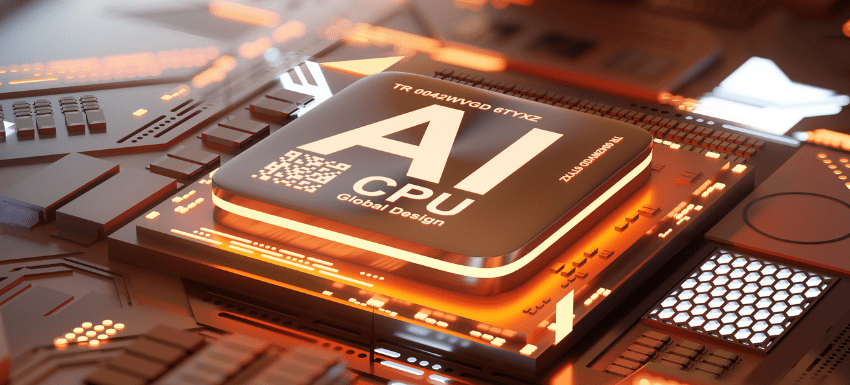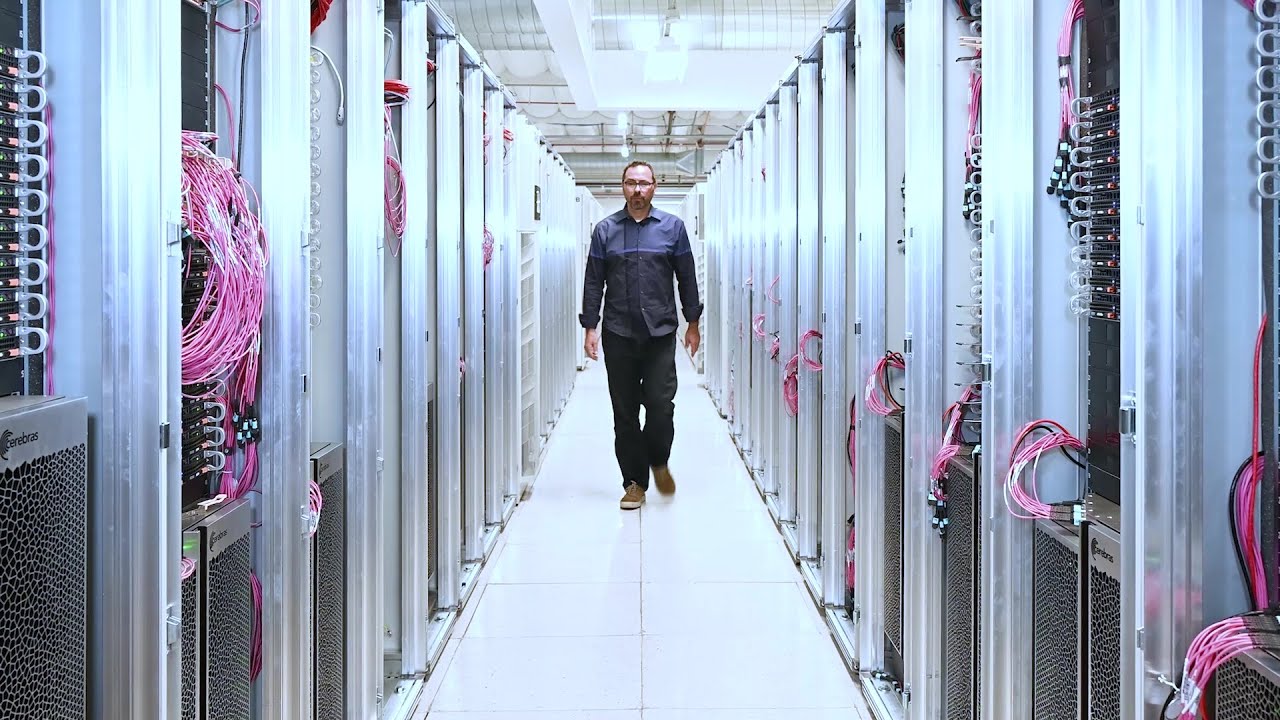Innovative AI hardware has the potential to drive remarkable capabilities and revolutionize how people interact with technology and the world around them.
Have you ever thought about how a tiny chip, smaller than your thumbnail, can mimic human thought processes?
It’s a mind-blowing fact that the hardware behind artificial intelligence (AI) is the powerhouse that makes it possible.
As you explore the world of AI hardware, you will discover how GPUs, TPUs, and neural processing units powerfully shape the landscape of artificial intelligence. Their significant role cannot be underestimated.
In this article, I will discuss with you the complexities of AI hardware, its pivotal role in driving modern innovation, technologies used, pros and cons, their usage, and other details.
Let’s get started!
What Is AI Hardware?
AI hardware consists of special parts that drive artificial intelligence technologies. These parts are created to manage the complex calculations needed for recognizing patterns, making decisions, and analyzing data.
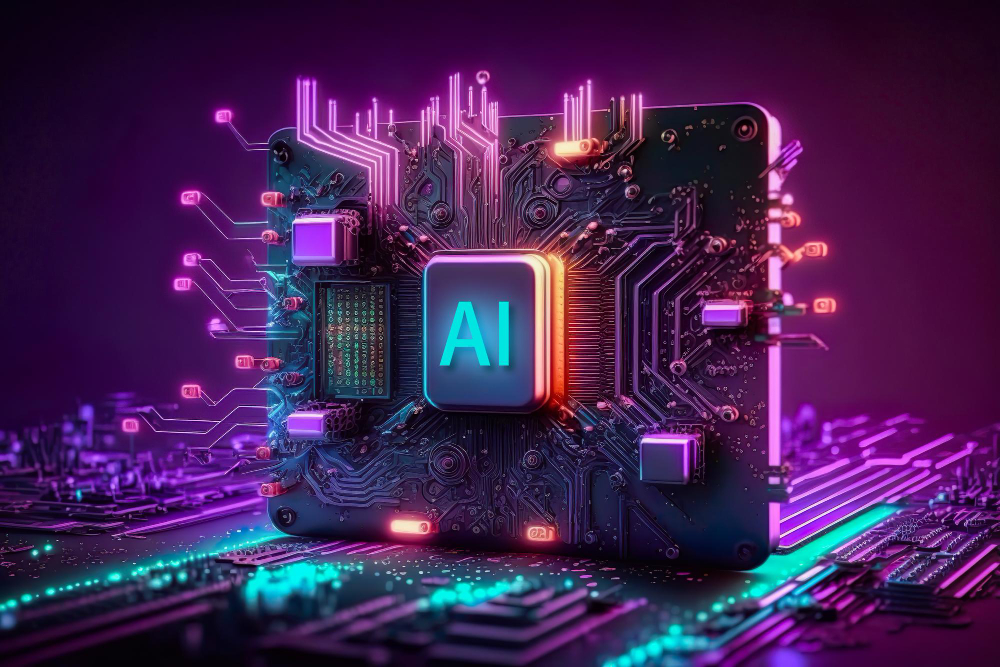
Imagine them as the sturdy muscles that support the AI brain’s functions.
The heart of AI hardware lies in the processors such as Graphics Processing Units (GPUs), Tensor Processing Units (TPUs), and Neural Processing Units (NPUs).
- GPUs: These were initially designed for rendering graphics. Since GPUs excel in parallel processing, these are perfect for training AI models.
- TPUs: Created by Google specifically for accelerating AI computations, TPUs particularly excel in deep learning tasks.
- NPUs: These can handle tasks involving neural networks and essentially mimic the neural connections found in the human brain.
All the above hardware components work together to process and analyze vast amounts of data, enabling AI systems to learn, adapt, and make predictions.
AI Hardware Technologies
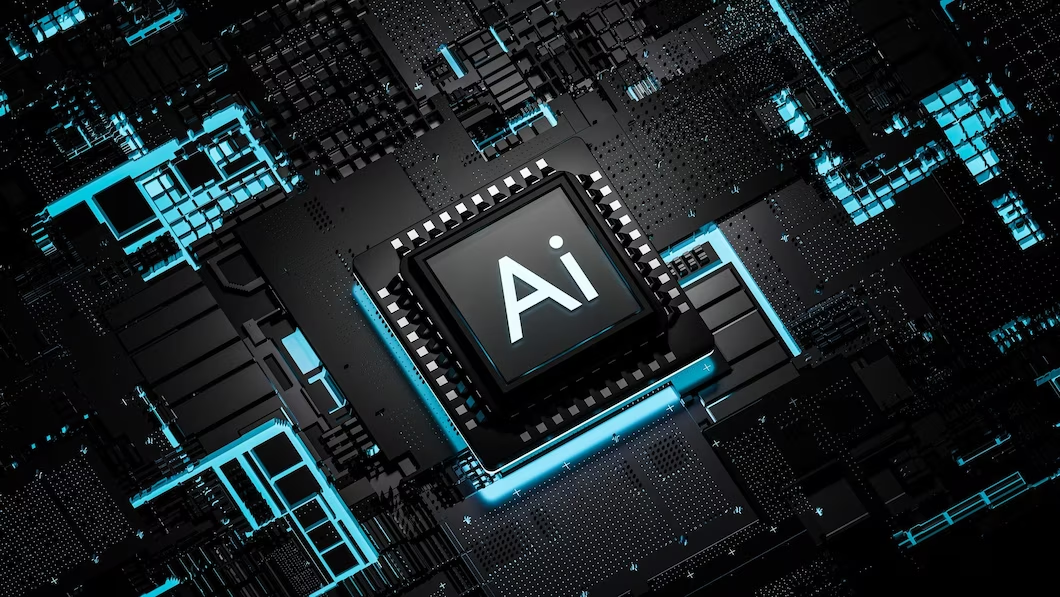
Let’s explore the key players in this technological symphony.
#1. Graphical Processing Units (GPUs)
Originally designed for rendering complex graphics in video games, GPUs have surprisingly found their place in the realm of artificial intelligence. The key to their capability in AI lies in parallel processing – the ability to handle multiple calculations simultaneously.
Unlike traditional processors, GPUs excel at swiftly crunching vast amounts of data, making them an ideal choice for training intricate AI models. Their impressive processing power speeds up data manipulation and model training, significantly reducing the time required to educate AI systems.
#2. Tensor Processing Units (TPUs)
Returning from the innovative hub of Google, TPUs were crafted with a singular purpose – to supercharge specific AI workloads, especially those involving neural networks.
One remarkable aspect of TPUs is their exceptional efficiency, as they consume less power compared to traditional CPUs and GPUs while accomplishing these tasks.
#3. Deep Learning (DL)
Deep Learning (DL), a branch of machine learning, embodies the way the human mind can assimilate and comprehend information, but in a digital form. Neural networks with multiple layers are employed by this technology to progressively abstract and manipulate data.
Deep learning serves as the driving force behind modern AI, propelling it towards increasingly sophisticated accomplishments.
#4. Application-Specific Integrated Circuits (ASICs)
ASICs serve as the tailored suits in the world of AI hardware. These chips are meticulously crafted to excel at specific tasks within AI computations, exhibiting remarkable efficiency.
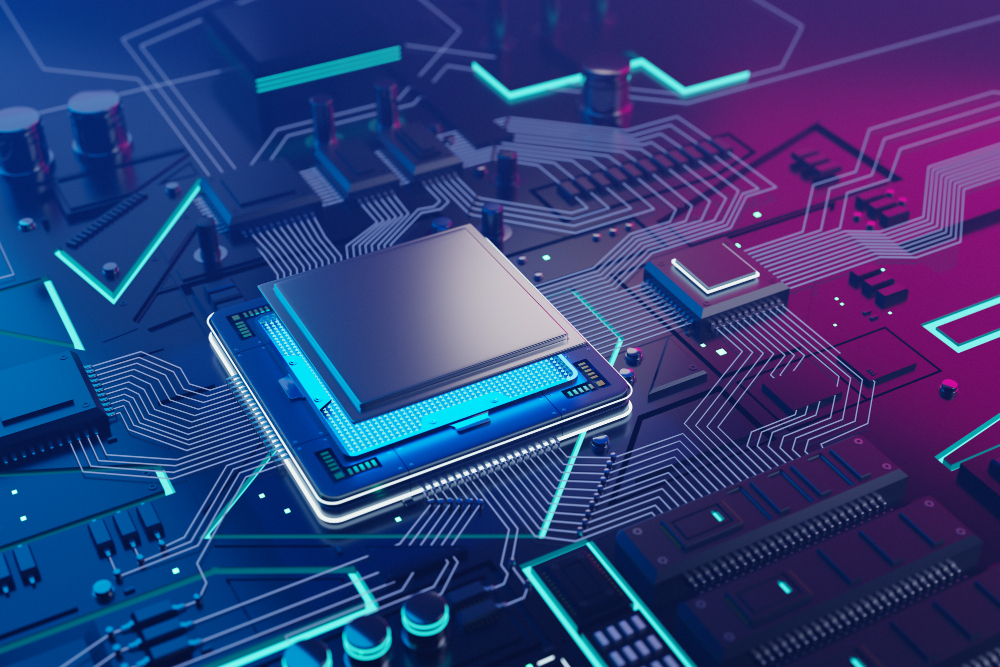
Unlike generic processors, ASICs are designed with precision, honing in on particular types of calculations. This focused approach grants them exceptional speed and energy efficiency for AI workloads.
#5. Field-Programmable Gate Arrays (FPGAs)
What if your computer’s hardware had the remarkable ability to transform?
This unique characteristic defines FPGAs (Field Programmable Gate Arrays).
Unlike conventional processors, FPGAs can be reconfigured after manufacturing to adapt and optimize their performance for specific tasks seamlessly. This extraordinary flexibility positions them like the Swiss army knife of AI hardware, offering a harmonious blend between ASICs’ efficiency and conventional processors’ versatility.
#6. Neuromorphic Chips
Imagine a world where computer chips function just like our brains, with their intricate connections and rapid signaling.
Enter neuromorphic chips. These chips are different compared to regular chips. These remarkable creations excel at multitasking and swiftly responding to events. As a result, neuromorphic chips are perfect for conserving energy in AI systems and handling real-time tasks that demand speed and efficiency.
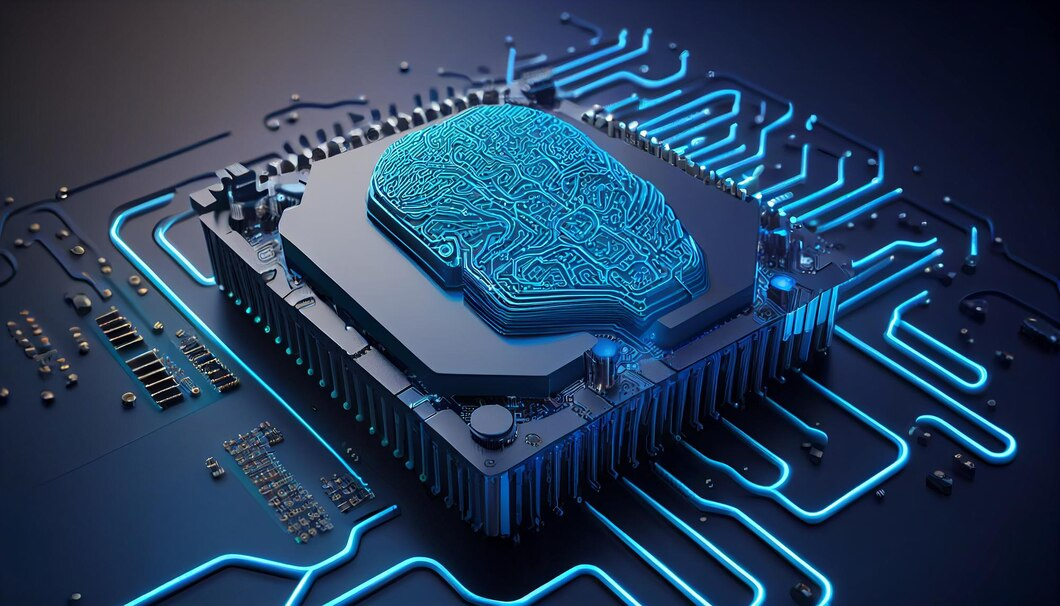
When it comes to choosing one among these AI hardware technologies, companies often lean towards using Graphical Processing Units (GPUs) and Tensor Processing Units (TPUs) for their AI tasks.
GPUs offer parallel processing power and versatility, making them a popular choice, especially for training complex AI models. Similarly, TPUs, created by Google, stand out for their ability to speed up neural network tasks, offering both efficiency and swiftness. These two options are favored because of their proven performance in handling the intense computational demands of modern AI applications.
AI Hardware vs. Regular Hardware
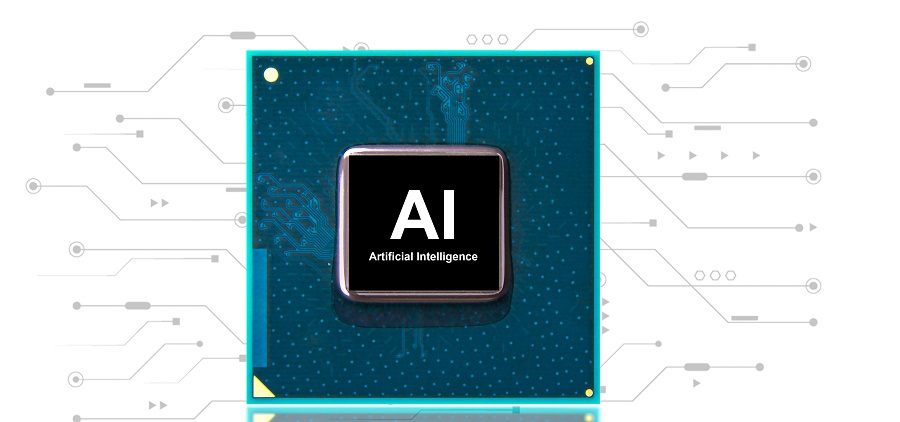
Understanding the distinction between AI hardware and regular hardware requires you to learn about the components that power the astonishing capabilities of artificial intelligence.
Here’s a breakdown of how AI hardware sets itself apart from regular or traditional hardware.
Complex Computations
AI tasks involve intricate calculations for pattern recognition, data analysis, making decisions, predicting events, etc. AI hardware is designed to efficiently handle these complex computations.
Parallel Processing Power
AI hardware, such as GPUs and TPUs, excels in parallel processing or executing multiple tasks simultaneously while ensuring performance. This enables quicker data processing and model training, which is critical for AI applications as you can deploy solutions faster.
Specialized Architecture
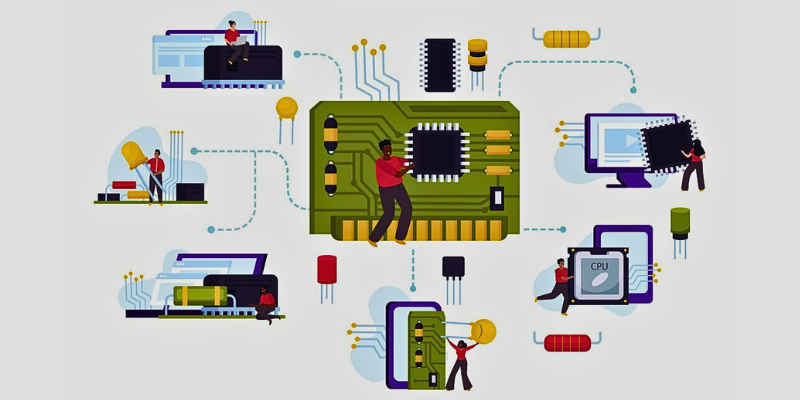
AI hardware is purpose-built for specific AI workloads, like neural networks and deep learning algorithms. This specialized architecture ensures the efficient execution of AI-specific tasks, unlike regular hardware that lacks this tailored design.
Energy Efficiency
AI hardware emphasizes energy efficiency due to the power-hungry nature of AI tasks. It’s optimized to perform AI computations using less power, prolonging the lifespan of devices and reducing operational costs.
Customization and Adaptability
Regular hardware is versatile but lacks the customization level that you can attain with AI hardware like ASICs and FPGAs. AI hardware is designed to cater to specific AI tasks, enhancing performance and efficiency.
How Startups Are Adopting AI Hardware
Integrating AI hardware into operations has become a strategic avenue for startups in the digital landscape, enhancing operations and driving innovation.
Let’s explore how startups harness the power of AI hardware.
Data Processing
Startups use AI hardware, like GPUs and TPUs, to accelerate data processing and model training. This, in turn, enables them to perform tasks faster, make informed decisions swiftly, and create out-of-the-box solutions.
Cost-Effectiveness
AI hardware’s parallel processing capability enables startups to accomplish more while utilizing fewer resources. This ultimately helps optimize costs and generate better ROI.
Customization
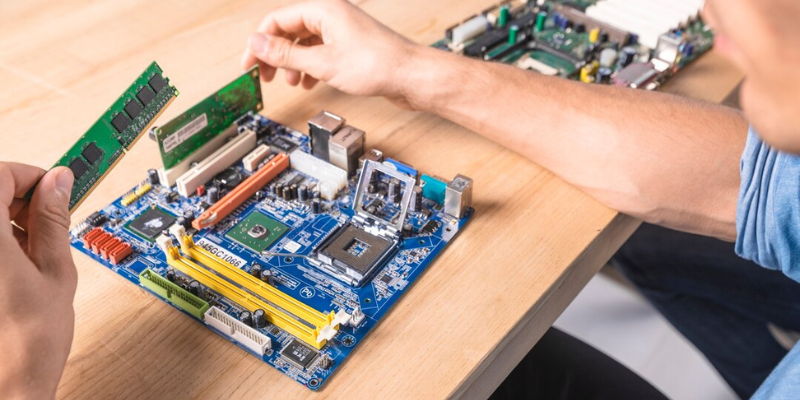
In the world of startups, finding customized solutions is often a necessity. The reason is every business has different goals, requirements, and restrictions. So, they need a solution that they can easily customize to make it suitable for their usage.
That’s where AI hardware comes into play. Specifically designed components, like ASICs and FPGAs, are easy to customize to match specific AI workloads. This provides more operational efficiency and boosts performance.
Edge Computing
Do you know that many startups operate on the edge, where real-time processing matters? Well, AI hardware such as neuromorphic chips can cater to that with its event-driven communication.
Innovation Boost
By incorporating AI hardware, startups can gain a competitive advantage. This technology allows them to develop innovative AI-driven products and services, positioning themselves ahead in the market.
Best AI Hardware Providers
Now, let’s look into the best AI hardware providers in the market.
#1. Nvidia
Nvidia, a global leader in AI computing, stands at the forefront of transforming industries through its innovative hardware. It has pioneered accelerated computing, an integral concept in AI’s functioning.
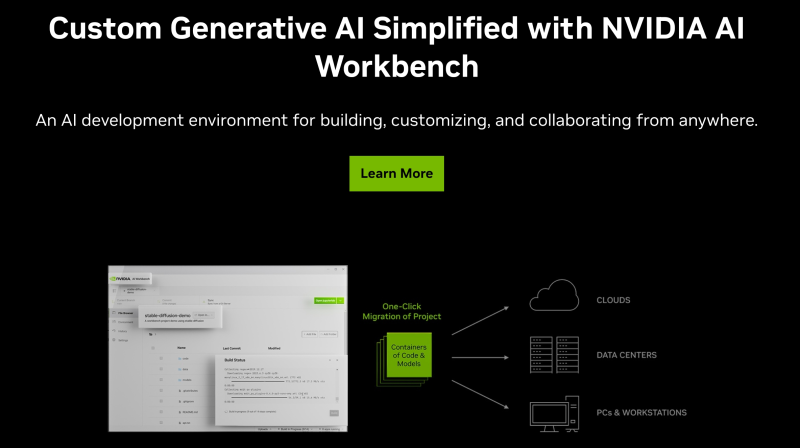
No longer limited to graphics, their GPUs serve as the brains behind AI operations, driving the computations that fuel its success. Whether powering data centers, the cloud, or personal devices, Nvidia’s hardware delivers the necessary computational power for AI applications.
Nvidia’s cutting-edge products, like the H100 GPU, are specifically designed to tackle complex AI tasks, solidifying their crucial role in the landscape of AI hardware.
#2. Intel
Intel, a leading name in the tech industry, offers a wide range of AI hardware options. From data preprocessing to training, inferencing, and deployment, their comprehensive portfolio has got you covered.
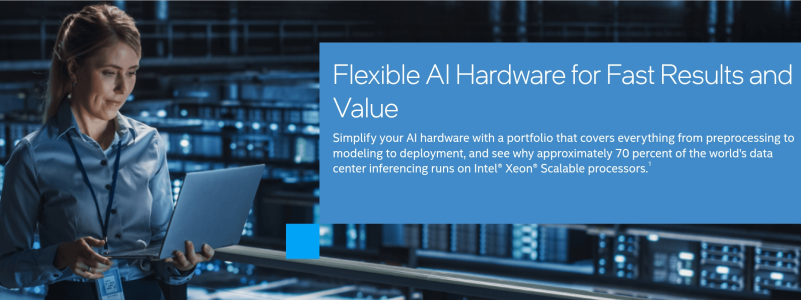
Whether you need a data science workstation or advanced machine learning and deep learning tools, Intel simplifies the process of AI deployments.
One standout product is their Xeon Scalable processors, which provide accelerated AI capabilities and enhanced security for easy implementation in data centers worldwide.
#3. Graphcore
Graphcore is an innovative company that has pioneered a new type of processor exclusively crafted for machine intelligence.
Their Intelligent Processing Units (IPUs) are purpose-built to handle the intricate computations required by AI, surpassing traditional hardware and exhibiting remarkable performance.
Graphcore’s comprehensive hardware and software solutions span across diverse sectors like finance, healthcare, and scientific research, enabling these industries to harness the power of AI efficiently.
#4. Cerebras
Cerebras has significantly contributed to AI hardware through its Wafer Scale Engine (WSE). The traditional use of GPU clusters in scaling deep learning often demands extensive engineering hours, posing a practical barrier for many who wish to harness the potential of large-scale AI.
Cerebras’ WSE removes this obstacle by providing a cluster-scale AI compute resource that is as easy to program as a single desktop machine. This means you can utilize standard tools like TensorFlow or PyTorch without the need for complex adjustments.
#5. Edge TPU
Developed by Google, Edge TPU is an ASIC that has been purpose-built for running AI at the edge.
This technology has emerged as a response to the growing demand for deploying AI models trained in the cloud on the edge devices due to considerations of privacy, latency, and bandwidth limitations.
With its compact physical size and low power requirements, Edge TPU offers remarkable performance while enabling high-accuracy AI deployment at the edge. It’s not merely a hardware solution; it combines custom hardware with open software and advanced AI algorithms.
#6. Amazon EC2 G4 Instances
When exploring the world of AI hardware, don’t forget to consider Amazon EC2 G4 Instances since it’s also a significant player in the industry.
G4 instances provide an affordable and flexible option, which makes them perfect for using machine learning models and applications that require a lot of graphics. These are specifically designed to handle tasks like image classification, object detection, speech recognition, and more.
You have the option to select either NVIDIA or AMD GPUs, each with its own unique advantages. Thus, it can become a valuable asset in your AI hardware toolkit.
#7. Qualcomm
Qualcomm is undoubtedly a global leader in wireless technology, making significant progress in the field of AI hardware. They are currently developing power-efficient AI technology that can be applied to a wide range of products and industries.

Qualcomm’s AI solutions bring several advantages, such as user privacy protection, improved reliability, and efficient use of network bandwidth.
With their AI Engine at the wheel, Qualcomm is driving the advancement of the Connected Intelligent Edge. This means the solutions can help enhance user experiences across various devices.
Advancements and Innovations in AI Hardware
The AI hardware industry is experiencing rapid advancements and groundbreaking innovations that are reshaping the artificial intelligence landscape.
Let’s dive into some exciting progress in this dynamic field.
Specialized Chips for AI
Tech giants like Google and Apple are responding to the complex requirements of AI with innovative solutions. They are revolutionizing the field by spearheading the development of specialized chips tailored to perform AI tasks.
Neuromorphic Computing
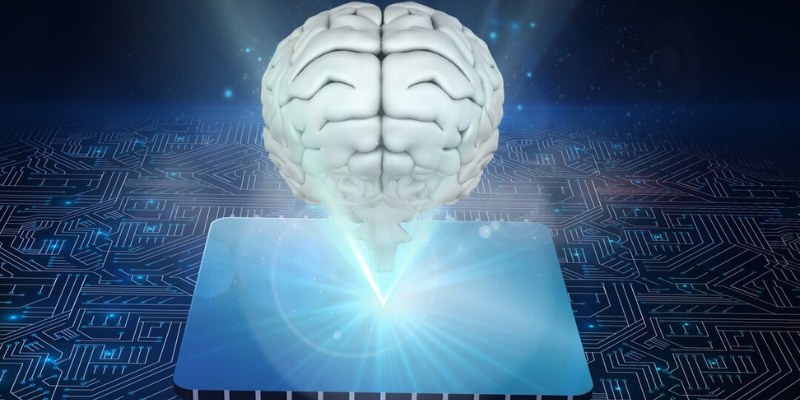
Neuromorphic chips offer cutting-edge technology in the field of AI hardware. They emulate the intricate neural connections of the human brain, paving the way for unprecedented advancements. This new era of neuromorphic computing combines efficiency and brain-inspired design to shape a future where AI can reach incredible heights.
Quantum Computing
The potential of quantum computers to tackle complex problems surpasses the capabilities of classical computers by leaps and bounds. While we are in the initial stage of witnessing the practical applications of quantum computing in AI, the impact it will have on AI hardware is profound.
Edge AI Acceleration
The rise of edge computing is being accelerated by AI hardware specifically designed for real-time, energy-efficient processing. This technological progress holds significant relevance, especially for devices such as IoT sensors and wearables.
Memory Innovations
Are you familiar with how AI algorithms work? They can be quite memory-intensive, which means they require a lot of storage space.
Fortunately, there are innovative solutions available to address this issue. Two emerging memory technologies, called resistive RAM (ReRAM) and phase-change memory (PCM), are stepping in to bridge the gap.
Pros and Cons of Using AI Hardware

By incorporating AI hardware, businesses, and industries can harness the power of artificial intelligence effectively. But it’s important to understand the pros and cons associated with using AI hardware.
Pros
- Enhanced performance: AI hardware can handle complex AI tasks, offering faster and more efficient processing compared to traditional hardware.
- Efficiency: Some AI chips, such as TPUs and neuromorphic chips, are made energy efficient. By using these specialized chips, you’re saving money on operations and being kinder to the environment.
- Speed: AI hardware significantly speeds up data processing and model training, empowering you to gain faster insights and make real-time decisions in various scenarios.
- Complex problem solving: Quantum computing, a type of AI hardware, has the incredible ability to solve complex problems at an unprecedented speed.
- Scalability: AI hardware can adapt and expand to accommodate the increasing demands related to growing datasets and evolving AI applications.
Cons
- Cost: The initial investment in AI hardware, including development, deployment, and maintenance costs, can be high.
- Lacks versatility: Some AI hardware, like ASICs, is optimized for specific tasks, limiting versatility for broader applications.
- Complex implementation: Integrating AI hardware requires both expertise and resources, which may pose challenges for smaller businesses during implementation.
Conclusion
AI hardware has remarkable capabilities to revolutionize different industries. Using AI hardware for executing heavy AI tasks is advantageous for businesses and individuals. It. It not only can boost efficiency and expedite problem-solving but also allow you to create scalable, futuristic AI solutions.
As AI hardware evolves, it’s expected to unlock opportunities and push boundaries in the field of technology. Whether you’re a business leader or simply curious about technology, understanding the aspects of AI hardware offers a glimpse into an exciting future led by innovative technologies.
Si quiere puede hacernos una donación por el trabajo que hacemos, lo apreciaremos mucho.
Direcciones de Billetera:
- BTC: 14xsuQRtT3Abek4zgDWZxJXs9VRdwxyPUS
- USDT: TQmV9FyrcpeaZMro3M1yeEHnNjv7xKZDNe
- BNB: 0x2fdb9034507b6d505d351a6f59d877040d0edb0f
- DOGE: D5SZesmFQGYVkE5trYYLF8hNPBgXgYcmrx
También puede seguirnos en nuestras Redes sociales para mantenerse al tanto de los últimos post de la web:
- Telegram
Disclaimer: En Cryptoshitcompra.com no nos hacemos responsables de ninguna inversión de ningún visitante, nosotros simplemente damos información sobre Tokens, juegos NFT y criptomonedas, no recomendamos inversiones

